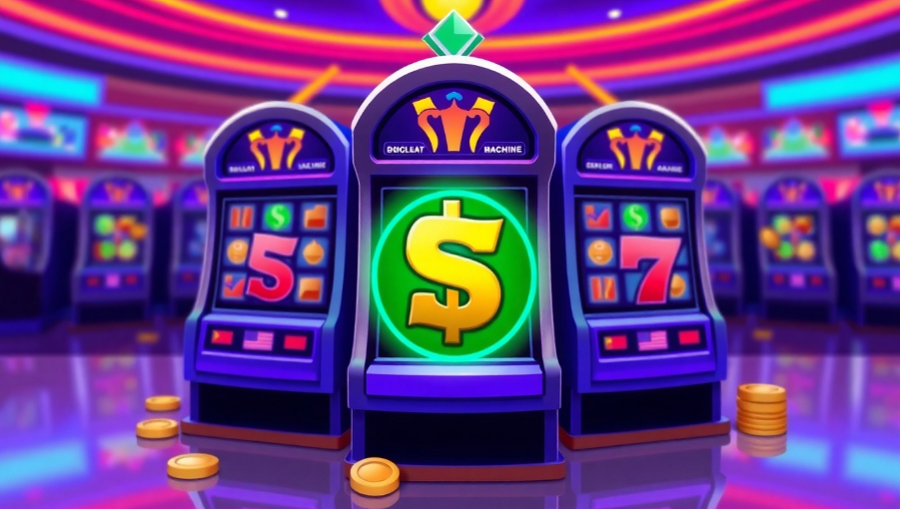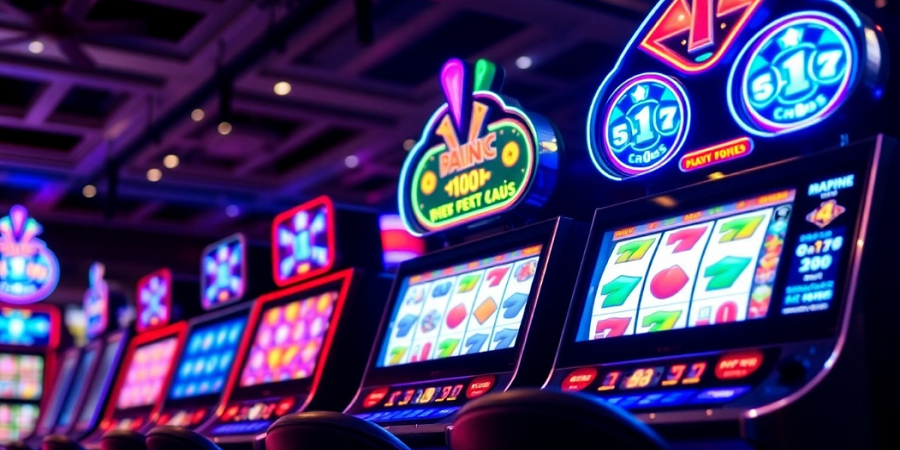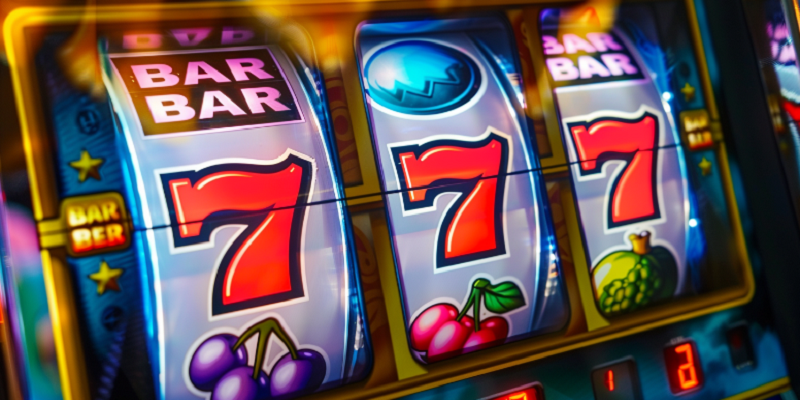The gambling industry has undergone a remarkable transformation over the past few decades. What began as simple mechanical devices with physical reels and a lever has evolved into sophisticated digital entertainment systems with complex algorithms and immersive experiences. Real money slot machines have been at the forefront of this technological revolution, becoming more accessible, engaging, and diverse than ever before. This dramatic shift has not only changed how people gamble but has also expanded the industry’s reach to new demographics and markets worldwide.
The Evolution from Mechanical to Digital Slots
The journey from mechanical to digital slots represents one of the most significant technological transitions in gaming history. Early slot machines—often called “one-armed bandits”—relied on springs, gears, and physical reels to determine outcomes. Each pull of the lever set the mechanism in motion, with results determined by where the reels physically stopped.
The introduction of Random Number Generators (RNGs) in the 1980s marked the beginning of the digital era. These computer algorithms generate thousands of random numbers per second, determining outcomes instantly when a player presses the spin button. This advancement enhanced fairness by eliminating patterns, enabled more complex game designs, and created the foundation for progressive jackpots that could grow to life-changing sums.
The shift to virtual reels also removed physical limitations, allowing developers to create games with more symbols and combinations than would be possible on mechanical machines. This digital foundation ultimately paved the way for the online gambling revolution that would follow.
The Rise of Online Slot Platforms

The internet’s widespread adoption dramatically transformed the player experience and industry landscape. No longer confined to physical casino locations, players could access their favorite games from home computers and eventually mobile devices.
This accessibility revolution democratized slot gaming, removing geographical barriers and time constraints. A player in a rural area hundreds of miles from the nearest casino could now enjoy the same games as someone on the Las Vegas Strip.
Online platforms provided developers with virtually unlimited creative freedom. Without the constraints of physical cabinets and mechanisms, games could feature complex bonus structures, cinematic animations, licensed content from popular entertainment franchises, and thousands of different themes catering to every interest imaginable.
The variety available online far surpasses what any physical casino could offer. Major online casinos now host libraries of hundreds or even thousands of different slot games, allowing players to switch instantly between options without moving from their seat.
Enhanced Visual and Interactive Elements
Modern slot games bear little resemblance to their mechanical ancestors. Today’s games leverage advanced graphics technologies to create stunning visual experiences that rival other forms of digital entertainment. High-definition displays showcase detailed artwork, fluid animations, and cinematic sequences that tell stories and create atmosphere.
Touchscreen technology has replaced physical buttons in both land-based and online slots, making interaction more intuitive and enabling new types of gameplay mechanics. Many modern slots feature interactive bonus games requiring player decisions, expanding symbols, cascading reels, and multi-directional paylines that break from traditional formats.
Game developers now employ teams of artists, sound designers, and user experience experts to craft immersive environments that keep players engaged. The visual presentation of today’s slots more closely resembles video games than the simple fruit machines of the past.
Mobile Gaming Revolution
The advent of smartphones created another seismic shift in how people engage with slot games. Mobile technology has made slot gaming truly portable, allowing players to enjoy their favorite titles anywhere with an internet connection.
Mobile-optimized platforms and dedicated casino apps have made the transition to smaller screens seamless with touch-optimized interfaces, portrait orientation options, quick-spin features, and push notifications for jackpot alerts and promotional offers.
According to industry reports, mobile gambling now accounts for more than 50% of the online gambling market, with slots being the most popular game category. This shift has forced developers to adopt a “mobile-first” design philosophy.
Artificial Intelligence and Personalization
Artificial intelligence has emerged as a game-changing technology in the slot machine industry. Modern online casinos employ sophisticated AI systems that analyze vast amounts of player data to understand individual preferences, playing patterns, and behaviors.
These predictive algorithms allow for unprecedented customization. When a player logs into an online casino, the AI can recommend games based on their history, suggest appropriate bet sizes, and even adjust the presentation of promotions to match their interests.
While these technologies offer significant benefits for player satisfaction and engagement, they also raise important ethical questions about data collection and targeting vulnerable individuals. The industry continues to navigate the balance between personalization and responsible implementation.
Virtual Reality and Immersive Experiences
Virtual reality represents the next frontier in slot machine evolution. VR technology allows players to step into fully realized virtual casino environments where they can interact with slot machines and other players in three-dimensional space.
With a VR headset, players can walk through virtual casino floors, pull virtual levers with hand controllers, view spectacular 3D animations, and experience winning moments with immersive celebrations that surround them.
As VR hardware becomes more accessible and comfortable, these immersive experiences are likely to become increasingly mainstream, especially among younger, tech-savvy players seeking novel entertainment experiences.
Social Integration Features
Modern slot games have transcended their reputation as solitary activities through social features that connect players and create community experiences. These innovations have transformed what was traditionally an isolated form of gambling into a potentially social activity.
Social features now common in digital slot games include multiplayer tournaments with leaderboards, shared jackpots, friend lists with social media integration, and chat functionality during tournament play.
These social elements respond to younger players’ desire for connected experiences while creating new retention mechanisms for operators. By building community around slot play, developers have created stronger loyalty and engagement.
Blockchain Technology and Cryptocurrencies
Blockchain technology is revolutionizing financial aspects of slot gaming by introducing unprecedented transparency and security. Crypto-based slot platforms leverage blockchain’s immutable record-keeping to offer provably fair gaming where players can verify the randomness of each spin.
These innovations address long-standing trust issues in online gambling by creating transparent records of game outcomes, enabling near-instant transactions, providing enhanced privacy, and eliminating currency conversion fees for international players.
While crypto gambling remains a niche compared to traditional online slots, its growth trajectory suggests these technologies may become mainstream options as cryptocurrency adoption increases.
Responsible Gambling Technologies
As slot machines have become more sophisticated and accessible, the industry has developed technologies to promote safer gambling practices. Modern platforms employ various tools to help players maintain control over their gambling activities.
Leading-edge responsible gambling technologies include predictive analytics that identify potentially problematic patterns, mandatory cooling-off periods, reality checks displaying session information, and customizable limits that lock players out when reached.
These protective measures use the same data capabilities that power personalization features but direct them toward player welfare rather than profit maximization. The effectiveness of these technologies continues to improve as AI systems become better at distinguishing between recreational high-spending and problematic behavior.






